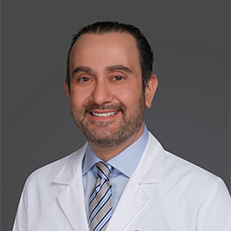Glaucoma Treatment in Orange County, CA
Damage caused by glaucoma cannot be reversed. However, our Orange County glaucoma specialists use different methods to help prevent further damage:
- Medicated eye drops
- DURYSTA
- Laser surgery (SLT)
- Surgery in the operating room (cataract surgery, MIGS (micro-invasive glaucoma surgery) like iStent®, trabectome, viscocanalostomy, trabeculotomy, and trabeculectomy).
- Oral medications
With any type of glaucoma, periodic examinations are very important to prevent vision loss. Because glaucoma can progress without your knowledge, adjustments to your treatment may be necessary from time to time.
Breakthrough for Treating Open-Angle Glaucoma during Cataract Surgery
Harvard Eye Associates utilizes advanced technology during cataract surgery to help patients with mild to moderate open-angle glaucoma: the iStent® Trabecular Micro-Bypass (from Glaukos Corporation).
The iStent® is the only implant approved for the treatment of mild-to-moderate open-angle glaucoma. It is also the smallest known implant ever approved by the FDA. Although the device is extremely small, measuring only a millimeter in length, iStent® increases fluid outflow to safely lower eye pressure.
iStent® is implanted during cataract surgery to reduce intraocular pressure in adults currently treated with glaucoma medications. This procedure has the potential to reduce a patient’s reliance on medications since many open-angle glaucoma patients are burdened with the inconvenience and expense of using two or more different types of drops every day to control their eye pressure.
In 2013, Harvard Eye Associates was selected amongst a handful of practices throughout the country to be named a Glaukos Center of Excellence.
Medicated Eye Drops
Glaucoma is usually controlled with eye drops taken daily. These medications lower eye pressure, either by decreasing the amount of aqueous fluid produced within the eye or by improving the flow through the drainage angle.
Possible Side Effects of Glaucoma Eye Drops
- A stinging or itching sensation
- Red eyes or redness of the skin surrounding the eyes
- Changes in pulse and heartbeat
- Changes in energy level
- Changes in breathing (especially with asthma or emphysema)
- Dry mouth
- Changes in sense of taste
- Headaches
- Blurred vision
- Change in eye color
All medications can have side effects or can interact with other medications. Therefore, it is important that you make a list of the medications you regularly take and share this list with each doctor you see.
Never change or stop taking your medications without consulting your ophthalmologist. If you are about to run out of your medication, ask your ophthalmologist if you should have your prescription refilled.
Laser Surgery for Glaucoma
Laser surgery treatments may be recommended for some types of glaucoma.
- In open-angle glaucoma, the drain itself is treated. The laser is used to modify the drain (trabeculoplasty) to help control eye pressure.
- In closed-angle glaucoma, the laser creates a hole in the iris (iridotomy) to improve the flow of aqueous fluid to the drain.
Glaucoma Surgery in the Operating Room
When surgery in the operating room is needed to treat glaucoma, your ophthalmologist uses fine, microsurgical instruments to create a new drainage channel for the aqueous fluid to leave the eye. Surgery is recommended if your ophthalmologist feels it is necessary to prevent further damage to the optic nerve. As with laser surgery, surgery in the operating room is typically an outpatient procedure.
Your Part in Glaucoma Treatment
Treatment for glaucoma requires teamwork between you and your doctor. Your doctor can prescribe treatment for glaucoma, but only you can make sure that you follow your doctor’s instructions and take your eye drops. When you are taking medications for glaucoma, your ophthalmologist will want to see you more frequently.
Typically, you can expect to visit your ophthalmologist every 3-4 months. This will vary depending on your treatment needs.
Loss of Vision Can be Prevented
Regular medical eye exams may help prevent unnecessary vision loss. Recommended intervals for eye exams are:
- Age 20-29: Individuals of African descent or with a family history of glaucoma should have an eye examination every 3-5 years. Others should have an eye exam at least once during this period.
- Age 30-39: Individuals of African descent or with a family history of glaucoma should have an eye examination every 2-4 years. Others should have an eye exam at least twice during this period.
- Age 40-64: Every 2-4 years.
- Age 65 or older: Every 1-2 years.
Identify, treat, and manage your glaucoma with the help of a glaucoma specialist at Harvard Eye Associates. Contact us to schedule an evaluation for glaucoma in Laguna Hills, San Clemente, or Orange.











